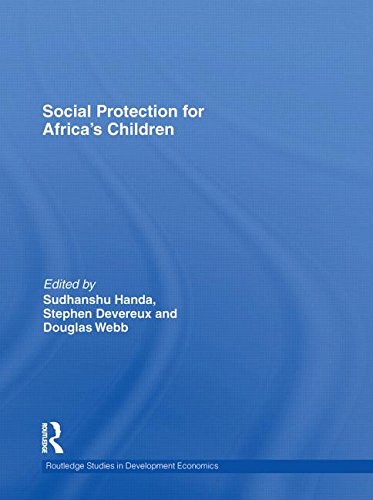

Most ebook files are in PDF format, so you can easily read them using various software such as Foxit Reader or directly on the Google Chrome browser.
Some ebook files are released by publishers in other formats such as .awz, .mobi, .epub, .fb2, etc. You may need to install specific software to read these formats on mobile/PC, such as Calibre.
Please read the tutorial at this link: https://ebookbell.com/faq
We offer FREE conversion to the popular formats you request; however, this may take some time. Therefore, right after payment, please email us, and we will try to provide the service as quickly as possible.
For some exceptional file formats or broken links (if any), please refrain from opening any disputes. Instead, email us first, and we will try to assist within a maximum of 6 hours.
EbookBell Team

4.0
76 reviewsSocial protection is an increasingly important part of the social policy dialogue in Africa, and yet because of its relatively new place in a rapidly evolving agenda, evidence on critical design choices such as targeting, and on impacts of social protection interventions, is mostly limited to case studies or small, unrepresentative surveys. This impressive collection makes a major contribution to building the evidence base, drawing on rigorous analysis of social protection programmes in several African countries, as well as original research and thinking on key topical issues in the social protection discourse.
Social Protection for Africa’s Children is divided into four parts. The first presents economic and human-rights based right arguments for social protection as an integral part of the social policy menu in Africa. This is followed by a part on targeting, which highlights some of the key policy trade-offs faced when deciding between alternative target groups. The third part presents rigorous quantitative evidence on the impact of social cash transfers on children from programmes in South Africa, Malawi and Ethiopia and the final part addresses a set of issues related to social justice and human rights.
This book significantly advances existing knowledge about social protection for children in Africa, both conceptually and empirically. It makes a strong case for social protection interventions that address the short term (amelioration) and long term (structural) needs of children, and shows that programming in this sector for children is both feasible and achievable. Policy makers and practitioners in this sector will have, in this book, the theoretical and empirical evidence necessary to advance social protection for Africa’s children in the decades to come. Furthermore, this book should be an essential resource to postgraduates and students focussing on development economics in Africa.